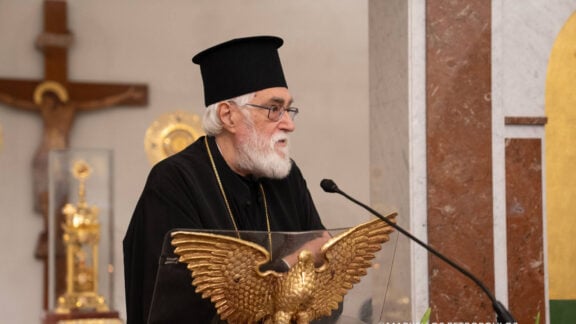The proposed misinformation and disinformation Bill spearheaded by communications minister Michelle Rowland has sparked intense debate among those in the political, cultural, and media beltway. However, most Australians have not paid much attention, despite the Bill potentially having a dramatic impact on their lives.
The Combatting Misinformation and Disinformation Bill 2024, introduced by minister Rowland, had its second debate before the Senate on 8 October. The Bill seeks to limit misinformation and disinformation on digital platforms that may cause “serious harm”—to the community, health systems, the state, and the economy.
New powers for ACMA: Regulating the digital information space
According to the Bill, the Australian Communications and Media Authority (ACMA) will be given “new powers and introduce new obligations on digital platforms to increase their transparency” and show how they handle “misinformation and disinformation on their services.”
“The Bill empowers the ACMA to oversee digital platforms with new information-gathering, record-keeping, code registration, and standard-making powers,” the minister’s office wrote to Neos Kosmos.
“The Bill will provide the ACMA with new powers to increase transparency and hold digital platforms to account.”
The ACMA would seek to regulate online content that spreads “misinformation or disinformation”.
The new powers of the ACMA include the search for “authoritative sources of information and support for fact-checkers and reporting tools.”
Minister Rowland said that “the Bill does not empower the ACMA to take down individual pieces of content or user accounts, or to investigate or fine users for their posts. It is about holding big tech to account.”
The Bill is aimed at reducing “serious harm,” which may include threats to “public health, critical infrastructure, and emergency services.” It covers the vilification of individuals or groups based on their race, religion, gender, or other characteristics, as well as “serious harm to the economy,” such as damaging public confidence in financial systems.
Minister Rowland wants the Bill to hold “big tech to account” if what is posted is deemed harmful to individuals, communities, health, state, and the economy. Yet, what content is genuinely harmful, who decides, and how it is determined, have become the real issues.
The minister said the Bill is aimed fundamentally at dangerous “content that can spread fast and rapidly, that can influence people, and it can be harmful, and frankly, the sort of expression that is beyond free speech. Which is harmful.”
An example cited was calling on people to drink bleach to fight COVID-19 or vilifying a group of people and calling for attacks against another.
Australia has existing racial vilification laws and emergency powers that governments can call on—as they did during the COVID-19 pandemic. However, Minister Rowland, in an email to Neos Kosmos, wrote that the Bill will address “major regulatory gaps” in existing laws to “combat the dissemination of seriously harmful misinformation and disinformation” on digital platforms.

Row over free speech: Will the Bill muzzle public debate?
Critics of the Bill argue that it imposes further limitations on free speech and freedom of expression, but the minister wants to allay those fears.
“It preserves freedom of expression by exempting professional news, parody and satire, and the reasonable dissemination of academic, artistic, scientific, or religious content—similar exemptions already exist in Australian law.
“The Bill aims to strike the right balance between the threat of serious harm posed by the spread of misinformation and disinformation online and freedom of speech,” Rowland said.
The minister went on to say that the bar of what is determined as the misinformation and disinformation “is very high.”
“It has a threshold of serious harm and that is that is a very important distinction and people must understand that.
“The Bill explicitly exempts the dissemination of content that is parody and satire or professional news content and reasonable dissemination of content for any academic, artistic, scientific, or religious purpose,” Rowland said.
Strong opposition from the Coalition
The Shadow Minister for Communications, David Coleman, does not back the Bill. He said it provides too much power to the ACMA and will force digital platforms to censor content deemed controversial to avoid investigation and possibly onerous fines.
“We progress as societies by debating stuff,” said the shadow minister to Neos Kosmos.
Coleman believes that the determination of what is harmful in the latest draft of the Bill is “subjective and complicated.”
He is very concerned about the minister, “an elected official,” having “the personal power to order investigations and to order hearings.”
“The investigation can’t be into a specific piece of content, but it could be on a topic,” he adds.
“This Bill is an attack on free speech and has no place in Australia. This Bill belongs in the bin, and the coalition will very strongly oppose it.
“We believe that this Bill is inconsistent with the principles of our democracy, and people should be free to state their opinions, even if those opinions are controversial,” said Coleman to Neos Kosmos.
“Even if opinions are unfashionable, part of what we do in a democracy is we debate ideas, and this Bill will significantly limit the ability of Australians to do that.
“It gives digital platforms a huge financial incentive to censor the opinions of Australians.”
Coleman emphasises how digital platforms would “simply delete anything that is marginally controversial” to avoid being fined. In essence, according to him, digital platforms would be censoring—something they already do—but much more.

Digital platforms, Coleman said, will “err on the side of deleting more materials so that they don’t run the risk of those big fines.”
“The losers in that process are ordinary Australians, because it’s going to be the content of ordinary Australians that gets removed.”
He added that the Bill has “exemptions for some people, but not for others.”
“For instance, anything that’s distributed for an academic purpose can’t be misinformation, but if an ordinary Australian disagrees with that academic and says, ‘Well, no, I don’t think that’s right,’ it can be misinformation. How is that fair? That’s basically creating two classes of speech.”
Concerns over Bill linger regardless of redraft
The Australian Human Rights Commission (AHRC), while glad that the Bill has been changed from its original form in 2023, is nevertheless still concerned with the implications for freedom of speech. In a statement to Neos Kosmos, the AHRC said that “While there have been several improvements to the revised Bill which are welcome, there are still a range of concerns that we believe need to be addressed.
“We remain concerned that the definition of misinformation and disinformation is too broad, and there are insufficiently robust transparency and scrutiny safeguards.”
The AHRC “recognises that misinformation and disinformation can cause real and serious harms, but we are concerned that the revised Bill provides insufficient protections for freedom of expression, with the risk that the law could end up improperly restricting access to diverse perspectives or censoring different views.”
Minister Rowland’s office underscored that freedom of expression is assured in the Bill and that the “bar is very high” for what may pass as misinformation and disinformation.
To be considered misinformation or disinformation under the Bill, content must be reasonably verifiable as false, misleading, or deceptive, and reasonably likely to cause or contribute to one of “six specific types of serious harm.”
Greek Australian academics weigh in: The balance between free speech and accountability
Leading Greek Australian thinker Professor Nikos Papastergiadis, in Culture and Communication at the University of Melbourne, said that he understands concerns about the need to protect freedom of speech, but he does not “believe there is such a thing as absolute freedom of speech.”
He points to “‘outlaws’ like Elon Musk, to use the Brazilian Supreme Court judge’s term.”
“I still cannot understand how the publishers in the new media [digital platforms] are exempted from the laws and standards of professional integrity and personal ethics that publishers in older forms of media were always bound by.
“I think the duty of accuracy and accountability should fall on the platform that benefits from the circulation of information and not be handed back on the shoulders of individuals,” said Professor Papastergiadis to Neos Kosmos.
Associate Professor in Marketing and Communications at RMIT University, Foula Kopanidis, finds the definition of what is harmful “subjective and open to interpretation.”
“What content is deemed harmful?” she asked and added, “This then begs the question: can government information, by definition, ever be classified as misinformation or disinformation under the law?”
Professor Kopanidis questioned the role of the government as having the authority to determine what legitimate information is and expressed concerns about the “possible exploitation of the legitimacy and authority we attribute to government sources of information.”
She worries that government-directed censorship would undermine debate and hamper our critical thinking as citizens.
“Government-directed censorship of content could also potentially stifle political debate and shift focus away from fostering critical thinking and higher-order cognitive skills essential for the next generation’s success in navigating life,” said Professor Kopanidis.
She agrees that “information spreads rapidly at the touch of a button,” but added that reaching “a balance against misinformation and disinformation is undoubtedly challenging.”
She said that the government, in seeking to pass the Bill, should ensure that “all actions are conducted impartially, remain without a political agenda, and uphold full transparency.”
Professor Kopanidis asked, “Should we not focus more on fostering future generations to be critical thinkers capable of discerning reliable content sources and addressing complex problems? It seems logical for navigating future challenges.”
No doubt, the Bill will continue to generate debate over freedom of speech and expression—core tenets of democracy. In the context of Greek democracy and rhetoric, the term parrhesia (παρρησία) refers to open and honest speech. It embodies not only the right to express oneself freely, but also the duty to speak the truth for the benefit of society, even when doing so may involve personal danger.
The challenge in a time of global digital behemoths is: who will allow for our parrhesia? Do we have sufficient trust that either the ACMA, the government, or the digital behemoths will do that?









